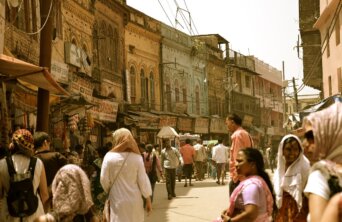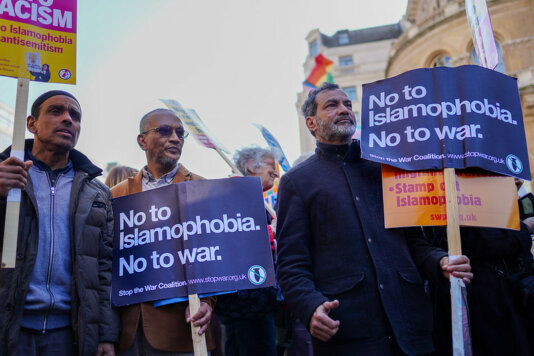- About
- Topics
- Picks
- Audio
- Story
- In-Depth
- Opinion
- News
- Donate
- Signup for our newsletterOur Editors' Best Picks.Send
Read, Debate: Engage.
| topic: | Election |
|---|---|
| located: | India |
| editor: | Hanan Zaffar |
Over the past decades, the representation of Muslims in the Indian Parliament has significantly declined. Despite India being home to about 220 million Muslims, the world's third-largest Muslim population after Indonesia and Pakistan, the number of Muslim representatives in the country's parliament has almost halved to less than five per cent in the last few decades.
Over the years, the Muslim population in India has steadily increased, reaching 15% in 2020, according to a projection by the Pew Research Centre. However, the representation of Muslim Members of Parliament (MPs) has never surpassed the 10% mark and has sharply declined over the last 15 years.
This decline has been particularly notable since the 2019 elections, which witnessed a second sweeping victory by Hindu nationalist Prime Minister Narendra Modi's Bharatiya Janata Party. In the 2014 national election, the BJP fielded seven Muslims, but none won despite overwhelming support for Modi among the voters that year. Similarly, in the 2019 polls, where Modi returned to power with an even more significant majority, the BJP fielded six Muslim candidates but again lost.
Currently, Muslims hold only 23 out of the 545 seats in the Indian Parliament, with not a single Muslim parliamentarian belonging to the ruling BJP. The decline in Muslim representation mirrors broader trends of underrepresentation and marginalisation of the Muslim community by the BJP within Indian politics, such as discriminatory electoral boundaries and political polarisation.
Election analysis indicates that since the BJP's inception in the Lok Sabha in 1984, it has maintained a minimal presence of Muslim MPs, fluctuating between 0% and 0.3% until 2009. With the BJP fielding only a few Muslim candidates in the Lok Sabha polls, the proportion of Muslim MPs in the Lok Sabha decreases as the BJP's MP count increases.
Experts worry that the lack of Muslim representation within the BJP's elected ranks contradicts the party's reiterated slogan: "Sabka saath, sabka vikas" (Unity and inclusive growth for all). Historically, the BJP maintained at least a "token Muslim presence," a trend that is no longer evident within the executive ranks.
The BJP has consistently defended its stance on Muslim representation, refuting claims of discrimination based on religion. In March 2022, Home Minister Amit Shah cited winnability as a crucial factor in the party's decision to exclude Muslims from its list of candidates. "Our ticket distribution is on the basis of winnability," he said in an interview with The Indian Express.
While Muslim leaders express concern over the lack of representation, critics accuse the BJP of showing disinterest in supporting Muslim candidates during campaigns. With the BJP expected to secure a continuous third term in the upcoming national election, scheduled to commence on April 19, the situation is unlikely to change and is feared to deteriorate further.
Image by Eddy Pellegrino

